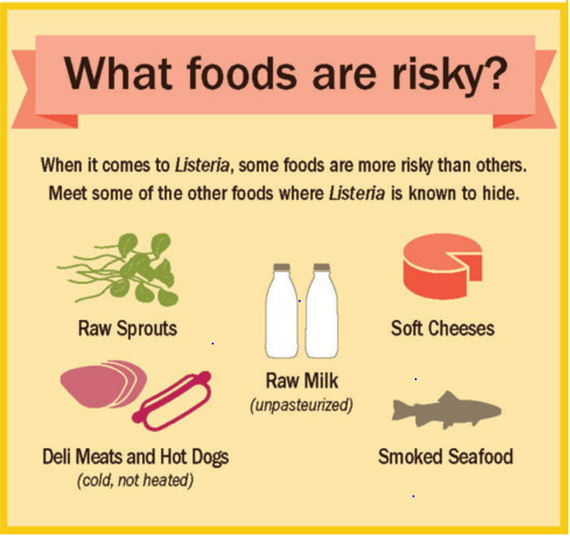A recent recall of over 350 frozen vegetable and fruit products should have you hunting in your freezer. Unfortunately, consuming this produce could land you in your local hospital ER with unpleasant results.
The Food & Drug Association (FDA), Centers for Disease Control and Prevention (CDC), and state and local officials are investigating a multi-state outbreak of Listeria that has been tracked back to frozen products produced by CRF Frozen Foods of Pasco, Washington. These frozen veggies and fruits are sold under 42 different brands including Wellsley Farms, McCain, Great Value, and Wild Oats. To date, seven people have been hospitalized due to Listeria. Click here for a complete listing of the brands that were recalled.
It is currently unknown how these frozen foods were contaminated with this bacteria. If any of these frozen foods are in your home either throw them away or bring them back to the store where you purchased them.
Listeria is the third leading cause of death from food poisoning. Even more seriously, at least 90 percent of people who are infected with listeria are folks age 65 years and older; those with a weakened immune system, including those with medical conditions such as liver or kidney disease, diabetes, alcoholism, and HIV/AIDS; and pregnant women and their infants. While pregnant women are typically alerted to their risk as it can cause miscarriages, stillbirths, and newborn deaths, older folks often don't know of the higher risk for the complications of Listeria.
According to the CDC, individuals 65 years of age and older are four times more likely to be at risk for getting Listeria compared to younger folks. In older adults, Listeria can enter your bloodstream, cause meningitis, and lead to death.
Listeria is a tricky pathogen to curtail as it can grow rapidly in your refrigerator and also contaminate foods that are typically consumed without cooking. In 2011, an outbreak of contaminated cantaloupes in 28 states sickened 147 folks and caused 33 deaths, mostly among those who were over 65 years of age, according to the CDC.
The foods with the highest risk of housing Listeria are:
To reduce your risk of getting Listeria, follow these tips from the FDA:
Meats:
Do not eat hot dogs, luncheon meats, cold cuts, other deli meats such as bologna, or fermented or dry sausages unless they are heated to an internal temperature of 165°F or are steaming hot just before serving them to kill the bacteria.
To prevent cross contamination, avoid letting the fluid from hot dog and lunch meat packages drip on other foods, utensils. Be sure to wash your hands after touching hot dogs, luncheon meats, and deli meats.
Do not eat refrigerated paté or meat spreads. Canned or shelf-stable paté and meat spreads are pasteurized so are safe to eat.
Soft Cheeses:
Do not eat soft cheese such as feta, queso blanco, queso fresco, brie, Camembert, blue-veined, or panela (queso panela) unless it is labeled as made with pasteurized milk. Make sure the label states that it is made with pasteurized milk on the label. However, be aware that Mexican-style cheeses made from pasteurized milk, such as queso fresco, which were likely contaminated during cheese-making, have been shown to cause Listeria infections in the past.
Seafood:
Do not eat refrigerated smoked seafood, such as salmon, trout, whitefish, cod, tuna, and mackerel, which is most often labeled as nova-style, lox, kippered, smoked, or jerky. These fish are typically found in the refrigerated section or sold at the seafood and deli sections of the store. Canned, self-stable tuna, salmon, and other fish products are safe to eat.
Melons:
Wash your hands with running, warm water, and soap before and after handling any whole melons such as watermelon, cantaloupe, and honeydew. Scrub the surface of the melons with a clean produce brush under running water and dry them with a clean paper towel before cutting into them. Sanitize that scrub brush after each use.
Refrigerator cut up melon promptly and toss it after seven days. If cut melon has been sitting at room temperature, discard it after four hours.
A few smart tips in your food handling can help you stay healthy.
Be well, Joan
Earlier on Huff/Post50:


